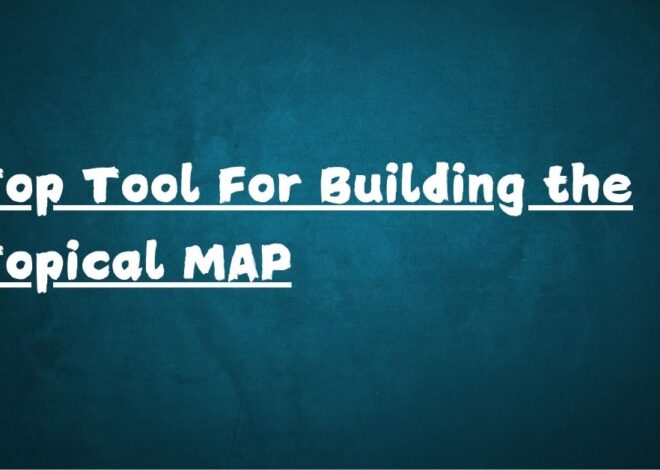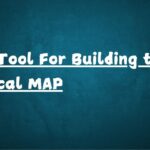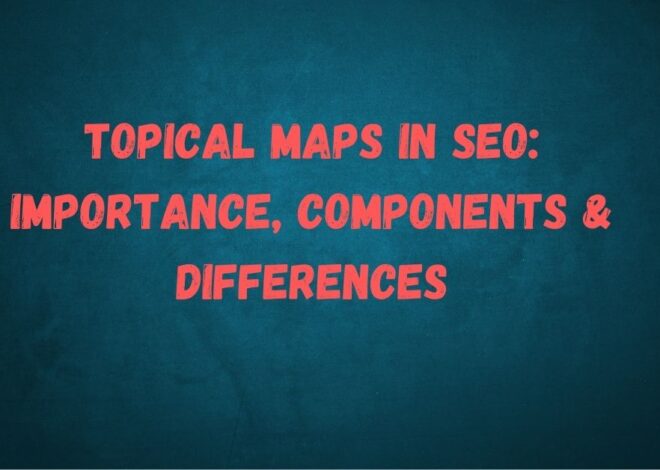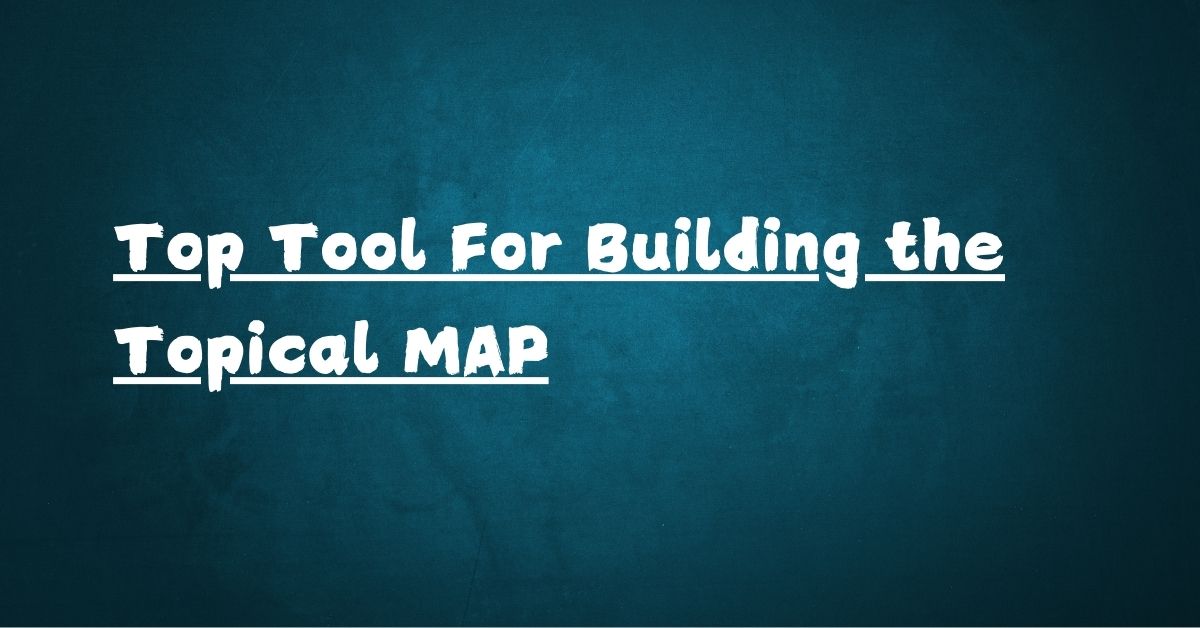
Top Tools for Building a Topical Map
Building a well-structured topical map is crucial for SEO success. A topical map helps organize content around key themes, enhancing relevance, user experience, and search engine rankings. In this article, we’ll explore the top Topical Map tools that can help you build a comprehensive topical map for your website.
Key Highlight:
- Boosts SEO: Organizes content effectively for better optimization.
- Top Tools: SEMrush, Ahrefs, and Surfer SEO create structured topical maps.
- Keyword Clusters: Tools identify clusters to enhance content relevance.
- Enhanced Strategy: Improves search rankings, user experience, and overall content strategy.
What Is a Topical Map?
A topical map is a visual representation that outlines the relationships between different topics and subtopics on a website.
It ensures that content is grouped logically, making it easier for search engines to crawl and index. By grouping content around a central theme, you improve internal linking, keyword relevance, and overall SEO performance.
Why You Need a Topical Map for SEO
- Improved Content Strategy: Organizes your content to target specific themes, enhancing relevance.
- Better Search Rankings: Helps search engines understand your website’s authority on topics.
- Enhanced User Experience: Makes it easier for users to navigate and find relevant content.
- Keyword Clusters: Identifies keyword groups, improving content targeting.
Top Tools for Building a Topical Map
Here are the top Topical Map tools for building effective topical maps:
1. SEMrush
SEMrush is a powerful SEO tool that provides a suite of features for building a topical map. It helps you analyze keyword clusters and suggests relevant content topics.
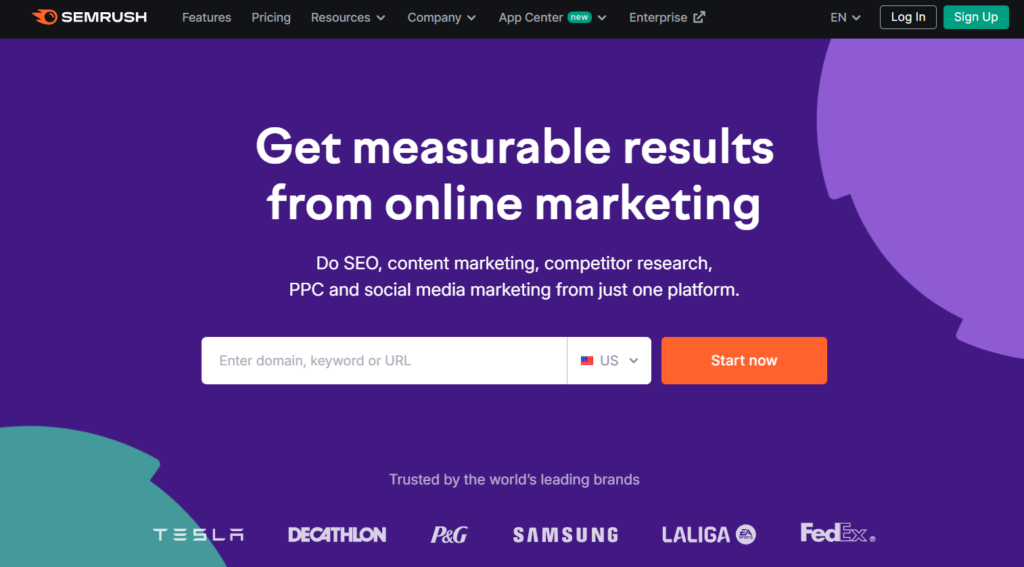
Key Features:
- Topic Research Tool: Generates content ideas and identifies subtopics based on user intent.
- Keyword Gap Analysis: Helps discover opportunities by comparing your keyword strategy with competitors.
- Keyword Magic Tool: Finds keyword clusters and related terms for building topical relevance.
Despite its powerful features, Semrush has some pros and cons, including:
| PROS | CONS |
|---|---|
| In-depth keyword analysis | Can be expensive for smaller businesses |
| Great for competitor research | |
| Accurate keyword clustering |
2. Ahrefs
Ahrefs is another popular tool for SEO professionals. It offers features that assist with creating a well-organized topical map.

Key Features:
- Content Explorer: Find the most shared and linked content on a specific topic.
- Keyword Explorer: Helps find related keywords and topics, giving you ideas for a strong topical map.
- Site Explorer: Analyze competitors’ websites to understand their topical structure.
Although Ahrefs is a great tool that I personally use extensively for keyword research, niche analysis, and backlink analysis, it has many advantages. However, there is one drawback that I believe could be an issue for those with limited budgets.
| PROS | CONS |
|---|---|
| Strong backlink analysis | Limited features on the lowest pricing tier |
| Excellent for competitive research | |
| Easy-to-use interface |
3. Surfer SEO
Surfer SEO is an excellent tool for building topical maps with a focus on on-page SEO and content optimization.
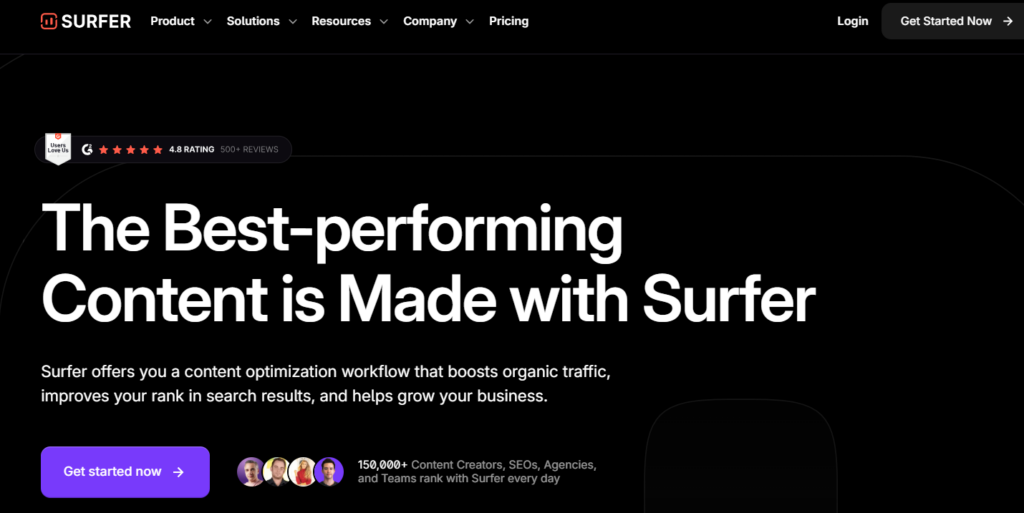
Key Features:
- Content Editor: Helps optimize content by suggesting keyword clusters and semantically related terms.
- Audit Tool: Analyze your existing content to ensure it fits within a well-organized topical structure.
- Keyword Research: Identifies topics that can be grouped together based on search intent.
I have used Surfer SEO extensively to optimize my content semantically. This tool has been incredibly helpful during my content creation process. Surfer SEO is also excellent for creating topical maps. Despite its many advantages, there are a few drawbacks, which I have mentioned below.
| PROS | CONS |
|---|---|
| On-page SEO optimization | Limited features in the lower-tier pricing plans |
| Keyword clustering for better topical organization | |
| User-friendly |
4. TopicalMap.com
TopicalMap.com is a service that specializes in creating detailed and comprehensive topical maps to enhance SEO strategies. Their maps delve up to four levels deep in the topical hierarchy, providing essential information such as keywords, search volumes, CPCs (Cost Per Click), keyword difficulties, content types, and SEO titles.
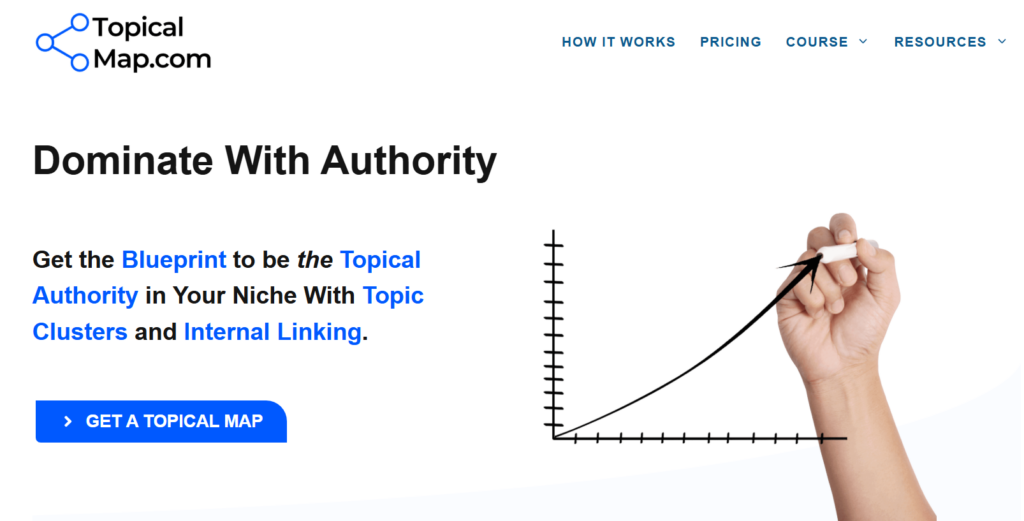
Key Features:
- In-Depth Topical Maps: Offers detailed maps that go up to four levels deep, covering a wide range of topics and subtopics.
- Comprehensive Data: Includes crucial information like keywords, search volumes, CPCs, keyword difficulties, content types, and SEO titles.
- SEO-Focused: Designed to enhance site architecture and support robust SEO strategies.
| PROS | CONS |
|---|---|
| Offers a deep understanding of topics for better content planning. | The depth of data may overwhelm beginners. |
| Provides essential information to optimize SEO strategies. | Can be more expensive than other SEO tools, limiting access for smaller businesses. |
| Improves content structure for better SEO performance. |
5. Topical Map AI
Topical Map AI is an AI-powered tool that automates the creation of keyword and topic maps. It enables businesses to generate optimized SEO strategies tailored to specific niches, countries, and languages, helping improve content structure and ranking.
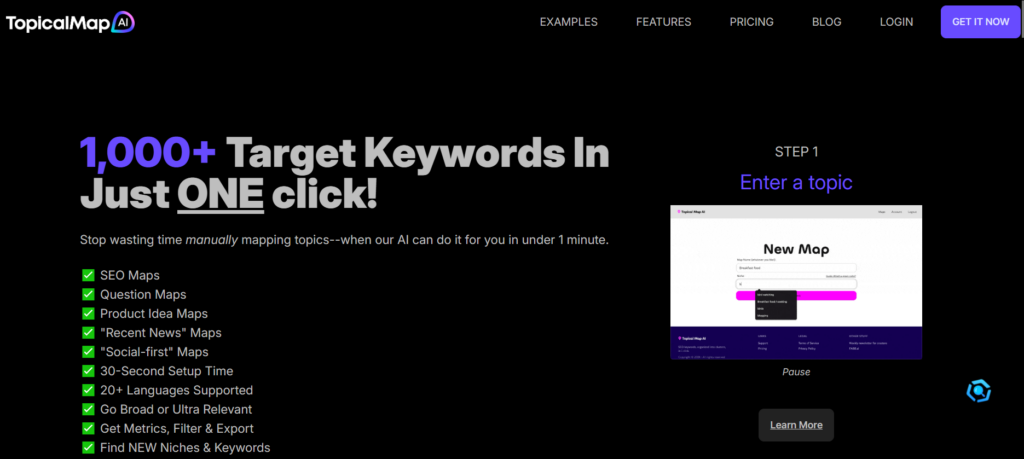
Key Features:
- Automated Topic Mapping: Creates SEO-friendly topic maps quickly.
- Customizable: Tailor the tool to specific niches, countries, and languages.
- Search Metrics: Analyzes search volume and other metrics for optimization.
- URL Structure Insights: Provides actionable recommendations based on content structure.
| PROS | CONS |
|---|---|
| Streamlines the content creation process. | May require some time to master its full features. |
| Customizable to specific needs. | Pricing could be high for smaller businesses. |
| Offers valuable search insights for optimization. |
6. AIHelperHub
AIHelperHub is an AI-powered tool designed to automate content creation and enhance SEO strategies. It generates high-quality, SEO-optimized content, builds topic clusters, and provides content optimization suggestions, helping businesses save time and improve web rankings.
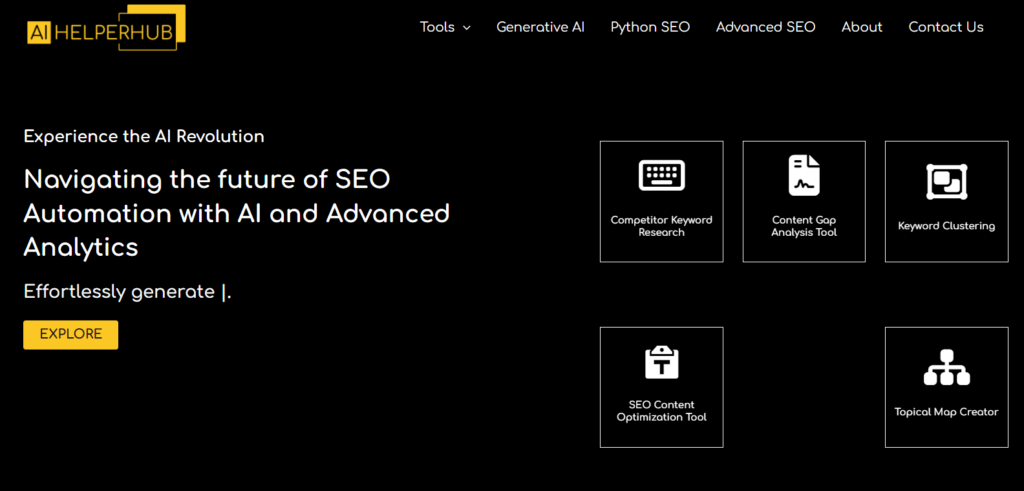
Key Features:
- AI Content Generator: Creates SEO-friendly content quickly.
- Topic Clustering: Groups related keywords and topics to improve content strategy.
- Content Optimization: Recommends changes to enhance SEO performance.
- Competitor Analysis: Compares your content with competitors to find gaps.
- Content Idea Generator: Suggests new content topics based on search trends.
| PROS | CONS |
|---|---|
| Saves time with automated content creation. | Limited customization for specific brand voices. |
| AI-driven insights for better SEO. | Requires fine-tuning of AI-generated content. |
| Easy to use with a user-friendly interface. | Pricing can be high for smaller businesses. |
| Helps identify and optimize topic clusters. |
7. MindMeister
While not specifically an SEO tool, MindMeister is a mind mapping tool that can help visually structure a topical map.
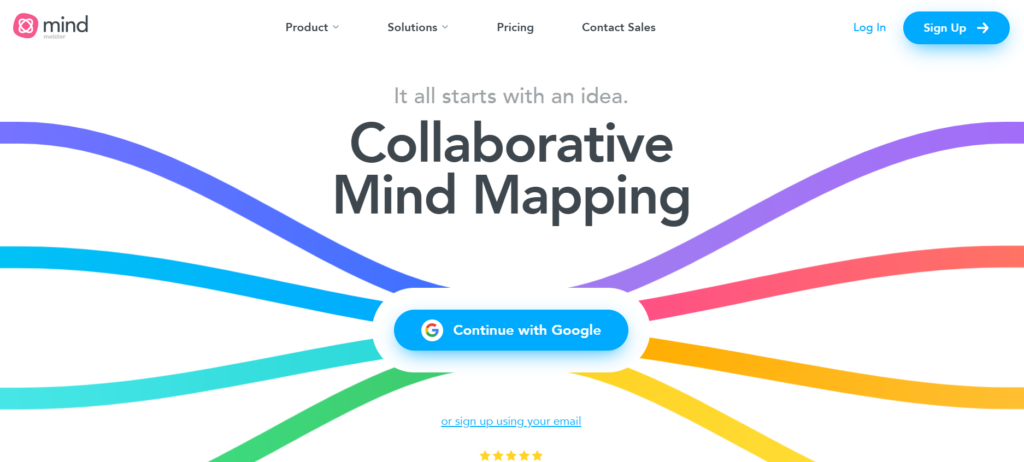
Key Features:
- Easy-to-Use Interface: Allows you to quickly create mind maps and organize content ideas.
- Collaboration: Works well in teams, enabling collaborative brainstorming for content creation.
| PROS | CONS |
|---|---|
| Visual mapping of topics and subtopics | Not SEO-specific |
| Great for brainstorming sessions | Limited features in the free version |
| Simple and user-friendly |
8. Google Search Console
Google Search Console (GSC) is a free tool that provides valuable insights into the performance of your website’s existing content. While not specifically designed for creating a topical map, it can be used to monitor the effectiveness of your content clusters.
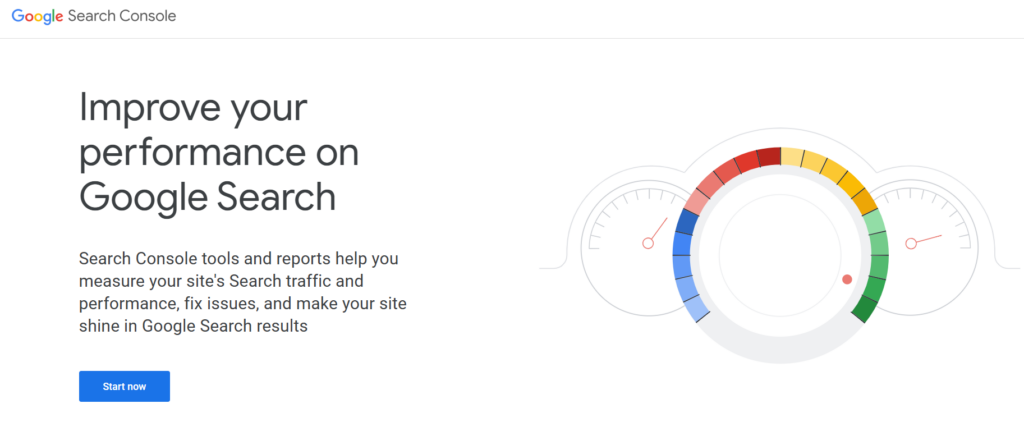
Key Features:
- Search Analytics: Provides data on how your content is performing for different queries.
- URL Inspection: Identifies issues with specific pages, allowing you to refine your topical strategy.
Google Search Console is one of my favorite tools that helps me understand how well my content performs in Google SERPs. It also helps me identify which topics I need to focus on more.
| PROS | CONS |
|---|---|
| Free to use | Doesn’t offer keyword clustering features |
| Direct insights from Google | Lacks content suggestion tools |
| Excellent for monitoring existing content |
Conclusion:
Building a topical map is essential for effective content strategy. Tools like SEMrush, Ahrefs,MindMeister,Surfer SEO and more help organize content, improve SEO, and enhance user experience. A well-structured topical map boosts audience targeting and strengthens your website authority.
